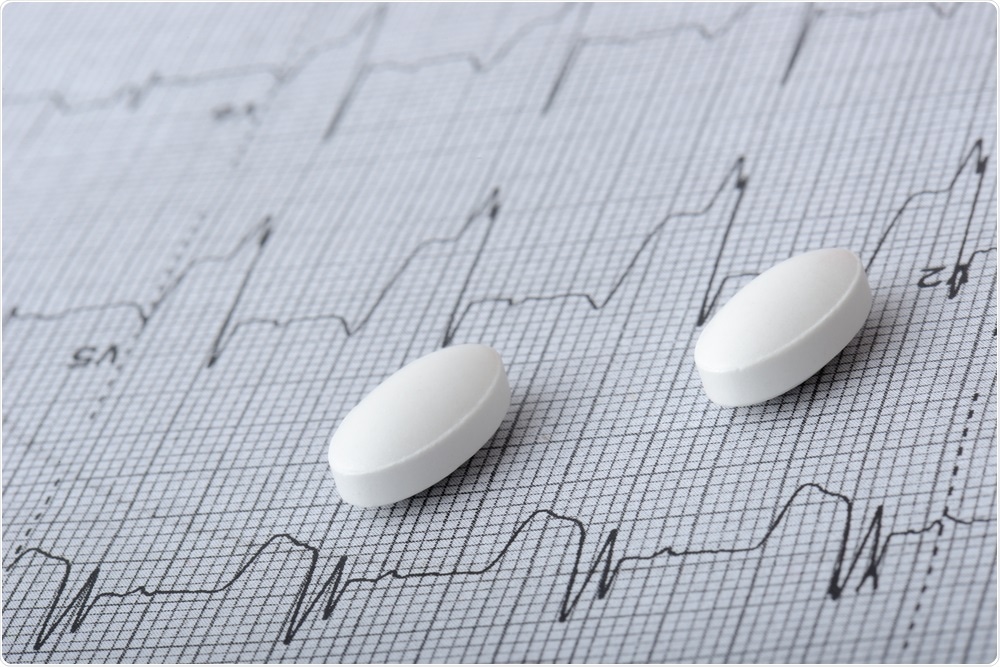Millions of patients do not benefit from taking statins and fail to achieve a cholesterol level low enough to reduce their risk of heart or stroke, report researchers.
According to a study recently published in the journal Heart, around half of people who are prescribed the drugs do not see their cholesterol drop to a healthy level within two years.
 Rob Hyrons | Shutterstock
Rob Hyrons | Shutterstock
In the UK, around 150,000 people die from cardiovascular disease every year. One known contributor is low-density lipoprotein cholesterol or “bad cholesterol,” which can build up in blood vessels and form plaques that narrow them.
Reducing consumption of saturated fat can help to lower a person’s bad cholesterol, but some people also need medication and around six million individuals in Britain are prescribed statins for this reason.
Guidelines from the National Institute for Health and Care Excellence (Nice) state that the aim of the treatment is to reduce low-density lipoprotein cholesterol by 40% or more. However, in the current study, half of the patients did not achieve this target and were at a 22% greater risk for developing cardiovascular disease than those who did achieve the target.
Associate medical director at the British Heart Foundation, Professor Metin Avkiran, says that statins are an important and proven treatment for lowering cholesterol and that although the study suggests not all patients benefit from taking them, it does not explain why.
Experts say possible explanations include patients not taking their prescribed drugs or doctors prescribing doses that are too low.
For the study, Stephen Weng and colleagues from the University of Nottingham looked at 165,411 individuals (aged an average of 62 years) who had been prescribed statins between 1990 and 2016.
The team found that 84,609 (51%) of the patients did not see their cholesterol drop by the required 40% or more, even after having taken the medication for 24 months.
After adjusting for factors such as age and any ailments prior to treatment, patients who did not achieve the target were 22% more likely to develop heart disease than those who did reach the target.
Weng and team say the findings provide “real world evidence” about statins and contribute to the debate on the effectiveness of statin therapy. They also “highlight the need for personalized medicine in lipid management for patients.”
Commenting on the finding that many patients had a “sub-optimal” response, Avkiran suggests “it may be that these people have been prescribed low dose or low potency statins, that they are not taking the medication as prescribed, or that they are not responding well to the type of statins that they have been prescribed.”
Indeed, the researchers did also find that a higher proportion of patients who had a “sub-optimal” response had been given lower-potency doses, compared with those who had an “optimal” response.
We have to develop better ways to understand differences between patients and how we can tailor more effective treatment for those millions of patients who are simply blanket-prescribed statins.”
Avkiran says that people who have been given statins, should continue to take them regularly, as prescribed, and should discuss any concerns about their medication with their GP.
“There are now other drugs available to help lower cholesterol levels, and it may be that another type of medication will be an effective addition or alternative for you,” he suggests.
Are statins right for me?
Statins work by inhibiting CoA reductase, the enzyme responsible for the synthesis of cholesterol in the liver. They have been proven to reduce “bad cholesterol” in the blood, high levels of which have been linked to heart attacks, stroke and peripheral artery disease.
Statins are commonly prescribed to patients with hypercholesterolemia (high blood cholesterol levels) and are usually prescribed at high doses.
Some patients choose to come off statins, due to their side effects. These include: muscle pain, liver damage (rare), increased blood sugar (statins have been linked to an increased risk of type 2 diabetes), memory loss or confusion.
Reducing cholesterol naturally can be difficult, below are some suggested actions:
- Become more active – lowering blood cholesterol can be achieved through mild-moderate exercises, and even walking.
- Improving your diet – in addition to weight loss, lowering the amount of sodium (salt) containing foods and drinking less alcohol has been shown to reduce cholesterol levels.
- Quitting smoking – smoking cessation has been linked to improved HDL
- Meditation – stress increases blood pressure and can cause us to consume foods that are rich in triglycerides. Learning meditation techniques can reduce cravings and lower blood pressure, reducing the risk of cardiovascular disease.
For more information, please visit the Hypercholesterolemia Treatment page.